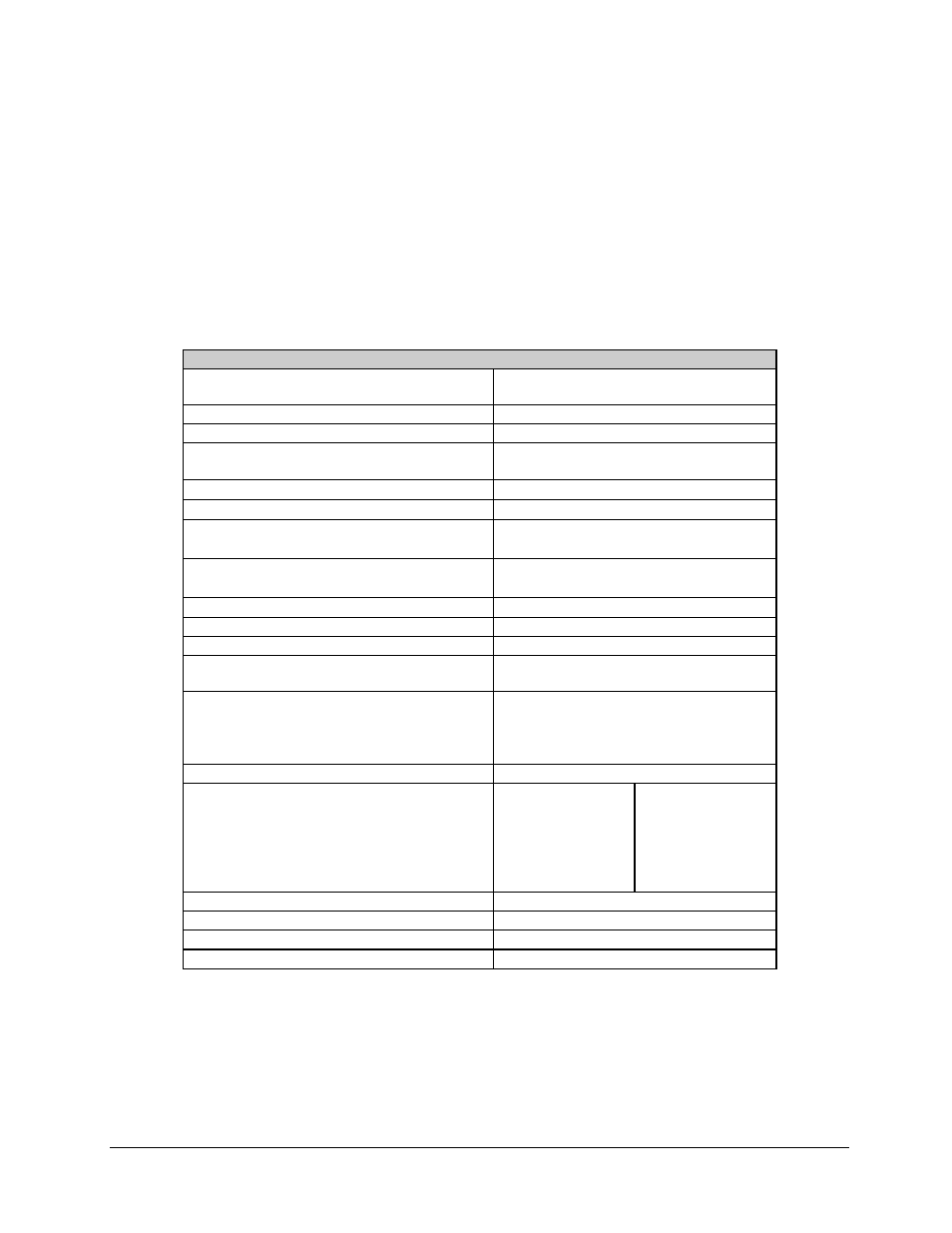System receive characteristics, 5 system receive characteristics – Comtech EF Data HPCST-5000 User Manual
Page 34

Introduction
High-Power C-Band Satellite Terminal
1–18
Rev. 0
1.7.5
System Receive Characteristics
The RX performance is defined for the C-Band LNA input to the 70 (140) MHz output of
the RFT-500. Intervening cable losses due to installation variables must be accounted for
when comparing to the performance data provided in Table 1-9.
Table 1-9. System Receive Characteristics
Receiver Characteristics
Input Frequency Range
3.625 to 4.200 GHz in 2.5 MHz steps
(Optional: 125 kHz)
Frequency Sense
No inversion
Input Level
-127 to -80 dBm
RX Gain
Adjust (0.05 dB typical steps, 1 dB maximum)
95 dB minimum
0 to 20 dB minimum (remotely controlled)
RX Frequency Stability
# 1 x 10
-8
at 23
!C (73!F)
Life RX Frequency Stability
# 1 x 10
-7
at 23
!C (73!F)
Gain Flatness
# 1.0 dB/36 MHz
# 0.25 dB/4 MHz
RX IF Output Bandwidth
70
# 18 MHz at 1 dB
(Optional: 140
# 36 MHz at 2 dB)
Noise Figure
65
! K (other options available)
TX Frequency Reject
60 dBm
RX image Rejection
-45 dBm
Linearity (Third order intercept)
Intermods
% -35 dBc for two tones at –89 dBm
at 95 dB gain.
Group Delay (any 36 MHz):
Linear
Parabolic
Ripple
IESS-309 (Fig. 3) < 10ns
0.28 ns/MHz
0.025 ns/MHz
2
1 ns P–P
Synthesizer Lock Time
< 1 second
Phase Noise (SSB) at:
10 Hz
100 Hz
1 kHz
10 kHz
100 kHz
(Maximum)
-30 dBc/Hz
-60 dBc/Hz
-70 dBc/Hz
-75 dBc/Hz
-80 dBc/Hz
Or
% 2.8! rms (DSB)
integrated 10 Hz to
1 MHz
Spurious (signal related) at 0 dBm RX IF output
-40 dBc
Inband Overdrive
No damage to 0 dBm
Third Order Intercept
+25 dBm minimum
RX IF Output at 1 dB Compression
+15 dBm minimum
